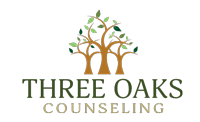Obsessive-Compulsive Disorder (OCD): Causes, Symptoms, Treatments
Obsessive-Compulsive Disorder (OCD) is a mental health illness that affects 2.2 million adults (1% of the U.S. population). But what causes OCD? What are the symptoms? And how can it be treated? Whether it’s you or someone you love who has it, it’s important to know what OCD is and what can be done about it.
What Causes OCD?
There isn’t complete agreement on what causes OCD. Many believe OCD is genetic, passed directly from parents to children. According to this theory, it is something people are born with. Others say that OCD develops biologically. Changes in someone’s biological and chemical makeup give rise to the disorder.
Another theory is that OCD is learned. Perhaps a child watches her parents behave a certain way and copies those behaviors over time. The fears and compulsive behaviors are passed on through modeling and imitation. Whatever the cause, if someone has OCD, it’s not that person’s fault. There should be no social stigma attached to people with the disorder. It’s a mental health illness outside of anyone’s control.
What is OCD?
The easiest way to understand OCD is to think about those two words: obsession and compulsion. Without choosing to do so, a person with OCD will THINK about certain things (obsession) and then feel internally forced to DO them (compulsion).
For example, maybe someone is walking down the sidewalk, and it’s impossible for them to NOT think about avoiding the cracks (obsession). As a result of this obsession, they feel forced to avoid the cracks (compulsion).
How Do Obsession and Compulsion Work Together?
Usually the obsessive thoughts one has are very distressing. The distress of those thoughts and feelings then leads to compulsive behaviors to satisfy what those thoughts and feelings demand.
Examples may include:
- Fear of germs and dirt contamination, which leads to……excessive hand washing.
- Fear of burning the house down, which leads to……checking 20 times to see if the stove is turned off.
- Fear of being punished for bad behavior, which leads to……trying to behave perfectly in every way.
- Obsession with order and symmetry, which leads to……organizing clothing in a dresser to impossible perfection.
Unfortunately, the obsessions that lead to compulsive behaviors do not go away when the behavior is complete. In fact, the obsessions usually just become stronger, and the cycle repeats itself.
Who Gets OCD?
- OCD is generally found in adult men and women at an equal rate, although, in the past year, women have suffered from it at a higher rate (1.8% of the population) than men (.5%)
- The average age of onset is 19, and most adults who have OCD report that they first had symptoms as a child.
- 25% of those who have OCD first had symptoms at age 14.
- 2.3% of OCD sufferers have it for their entire lives.
Are There Treatment Options for OCD?
Medications can relieve OCD, and they have proven to be effective for 70% of those who take them. The most common medications are selective serotonin reuptake inhibitors (SSRI), which are also used as antidepressants. In particular, Anafranil and Cymbalta are SSRIs that have been studied for a long time and have been proven to be effective.Beyond medication, there are several things OCD sufferers can do for themselves to improve their lives:
#1 — Be Aware of Triggers
It’s important to fight OCD where the battle begins: in the brain. Instead of being overwhelmed by one’s obsessions, record a list of them that occur throughout the day. Then, when that obsessive thought occurs, it is crucial to tell oneself that the fear is unnecessary or has been overcome. For example, if someone is afraid of the house burning down, when the compulsion arises to check the stove, it is important to make a mental note that the stove is indeed off.
#2 — Resist the Compulsions
There are many strategies to fight the compulsions one has, but the most common is Exposure and Response Prevention (ERP). The basic idea is to repeatedly face the compulsions one has…and to resist them. If the problem is excessive hand washing, it’s important, then, to actively touch dirty objects (like a public restroom doorknob) and then AVOID hand-washing. The more one practices this, the less obsessed and compelled they’ll be.
#3 — Have a Support System
Fighting OCD should not be a solo sport. Recognizing triggers and resisting compulsions requires sustained effort. To sustain that kind of effort will require a vital support network. It’s important to find at least 3-4 trusted friends and family that will help provide support and accountability.

Lindsey R. Stockton, LPC-S
Lindsey is the Clinician Manager at Three Oaks Counseling & Psychiatry and has several years of experience in counseling, parent education, and supervision.

